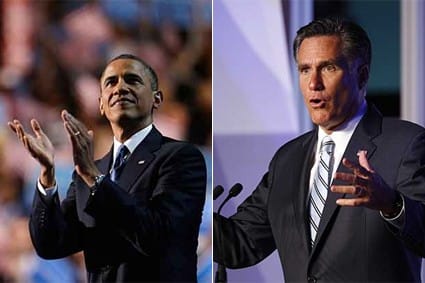Groups Demand Release of Secret Presidential Debate Contract

Photo: US News and World Report

Eighteen government and media watchdog groups led by Open Debates, called on the Commission on Presidential Debates Thursday to release the secret presidential debate contract negotiated between the two major party campaigns.
The groups included Open Debates, Common Cause, Public Citizen, Rock the Vote, Judicial Watch, Public Campaign, FairVote, Demos, Democracy Matters, League of Rural Voters, Fairness & Accuracy In Reporting, Essential Information, Personal Democracy Media, Reclaim Democracy!, Center for Study of Responsive Law, Citizen Works, Free & Equal Elections Foundation, and Rootstrikers.
In a press release, Open Debates reported:
"Robert F. Bauer of the Obama campaign and Benjamin L. Ginsberg of the Romney campaign negotiated a detailed contract that dictates many of the terms of the 2012 presidential debates, including how the format will be structured. The Commission on Presidential Debates, a private corporation created by and for the Republican and Democratic parties, agreed to implement the debate contract. In order to shield the major party candidates from criticism, the Commission on Presidential Debates is concealing the contract from the public and the press."
The contents of the secret presidential debate contract are especially interesting to watchdog groups this election cycle as the Commission on Presidential Debates draws fire from all sides for a number of controversies.
Earlier this month, the CPD drew criticism from a number of sources for an apparent lack of racial, ideological, and journalistic diversity among its presidential debate moderators.
And in a first for presidential debates, the CPD will be giving the presidential candidates a list of debate topics ahead of time. George Farah of Open Debates said:
"This is a step backward in a presidential debate. It eliminates any surprises and candidates will just cite memorized soundbytes."
CPD executive director Janet Brown said, "We had been thinking about this for awhile. CPD's intention is to have the candidates come prepared for a more in-depth conversation."
The CPD, DNC, and RNC are also facing a lawsuit from the Libertarian Party's Gary Johnson campaign for excluding the ticket from the debates despite its appearance on forty-seven state ballots this November, enough to feasibly take the electoral college votes necessary to win the presidential election. Green Party presidential candidate Jill Stein is also on enough state ballots this election to meet that minimum threshold.
The CPD does not control, nor oversee the contract negotiation process, which happens between the presidential campaigns, but executes the contract after the campaigns have finalized it.



